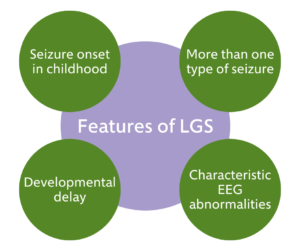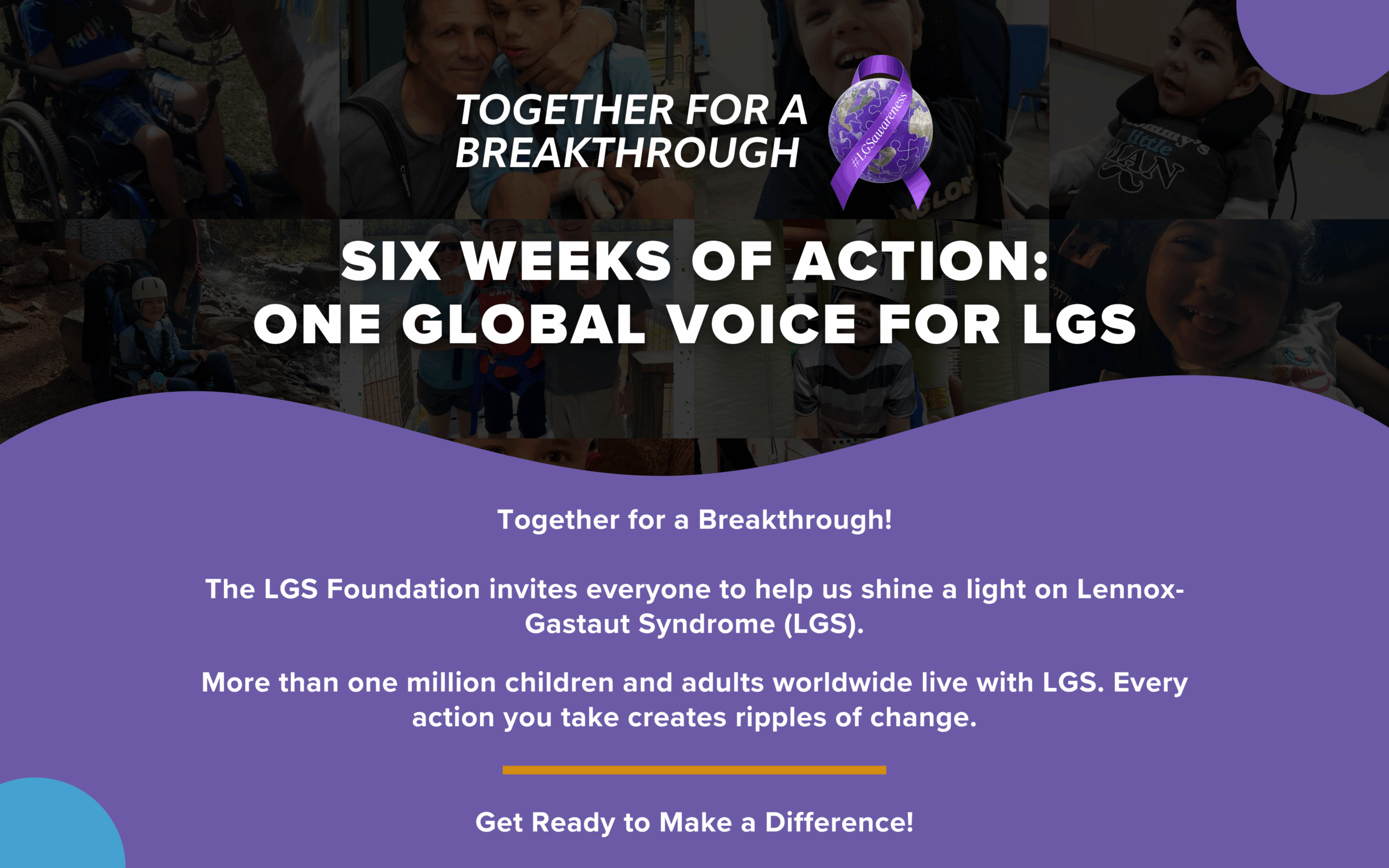For Healthcare Professionals
Collaborating to Advance LGS Care & Research
 At the LGS Foundation, we recognize the power of collaboration between expert neurologists, epileptologists, neurosurgeons, neuroscientists, and allied health professionals. Together, we are accelerating diagnoses, improving access to comprehensive treatment options, and empowering families with personalized care plans—ultimately enhancing quality of life and long-term outcomes for individuals living with Lennox-Gastaut Syndrome (LGS).
At the LGS Foundation, we recognize the power of collaboration between expert neurologists, epileptologists, neurosurgeons, neuroscientists, and allied health professionals. Together, we are accelerating diagnoses, improving access to comprehensive treatment options, and empowering families with personalized care plans—ultimately enhancing quality of life and long-term outcomes for individuals living with Lennox-Gastaut Syndrome (LGS).
Could it be Lennox-Gastaut Syndrome (LGS)?
LGS is one of the most severe Developmental and Epileptic Encephalopathies (DEEs), often evolving from early-life epilepsy that remains resistant to treatment. Characterized by a distinct electroclinical pattern, LGS disrupts typical brain development and is notoriously difficult to control. Over time, it can become neurodegenerative, leading to premature mortality.

LGS does not appear at birth. It typically emerges between the ages of 3 to 5 following early-life seizures or brain injury. However, onset can occur later in childhood. Early identification and comprehensive care planning are essential
- Get the Facts – Download our LGS Fact Sheet
- Also available in Spanish – Download our LGS Fact Sheet in Spanish
- Learn more – LGS Natural History Study
Help shape the future of LGS care and research.
We invite clinicians to contribute to the LGS Learn from Every Patient Database, a global patient registry and natural history study designed to:
- Collect longitudinal clinical, diagnostic, and treatment data
- Identify trends and patterns across the LGS population
- Accelerate breakthroughs in precision medicine
- Improve real-world outcomes through shared learning
Why Participate?
By contributing patient data, you support efforts to:
- Understand the variability of LGS presentations and comorbidities
- Strengthen clinical trial readiness
- Guide the development of targeted therapies
Together, we can ensure that every patient counts-and every experience informs progress.
LGS Caregiver Support Community
Connect families with our private online Caregiver Support Community, offering peer support, resources, and guidance from diagnosis through every stage of the journey.
Learn more about our support community
Complimentary Educational Materials
We provide free LGS educational materials for clinicians to share with patients and families.
To order materials: Email info@lgsfoundation.org
Appropriate use of LGS-specific ICD-10 codes can:
- Make it easier to secure coverage for indicated medications and medical testing required for recognized co-morbidities of LGS
- Allow researchers to track how many people have LGS
Recommended Codes:
Stay current with LGS-focused educational opportunities:
LGS Comprehensive Care Centers
Apply to join our growing network of centers offering multidisciplinary, expert-led LGS care.
LGS Clinical Trials
Explore ongoing trials and registries for your patients.
PERC LGS Special Interest Group
Join national experts in defining the natural history, etiology, and best practices for LGS care.
Contact: janeedperc@gmail.com
LGS Collaborative Research Network
We united researchers and families to push LGS science beyond seizure control-toward treating the whole syndrome.
Researcher Travel Program
Supporting early-career researchers and students in rare disease.
Stay informed with the latest research shaping LGS care.
Updated 10/06/25 (KK)

